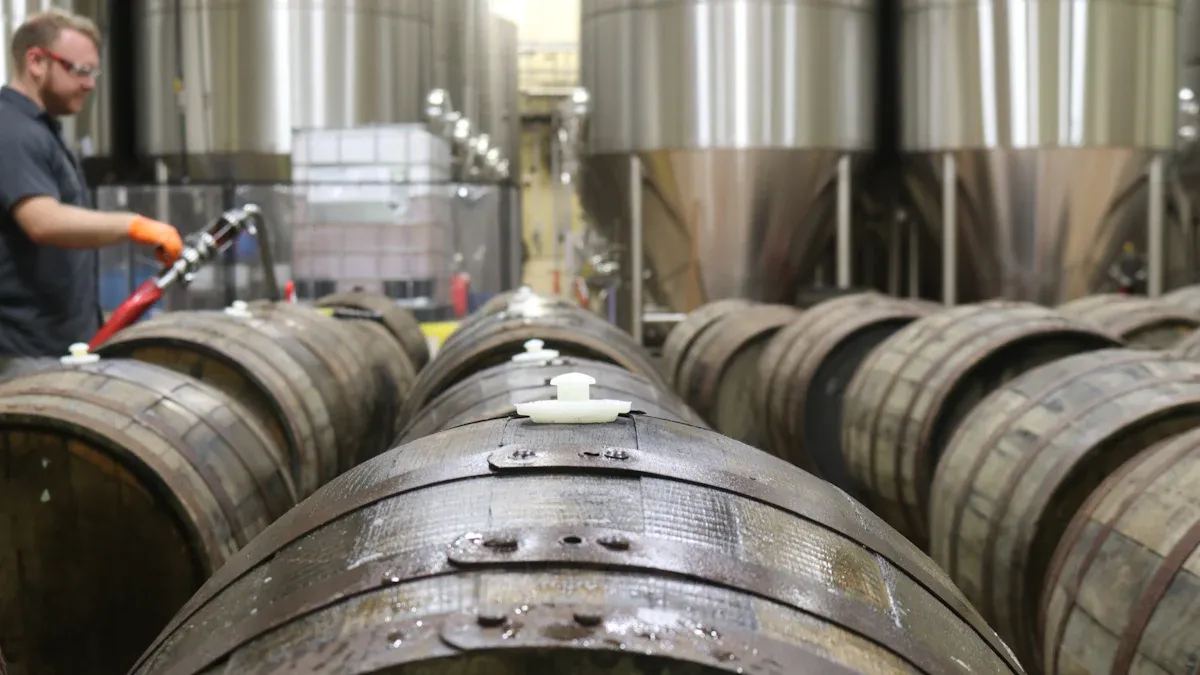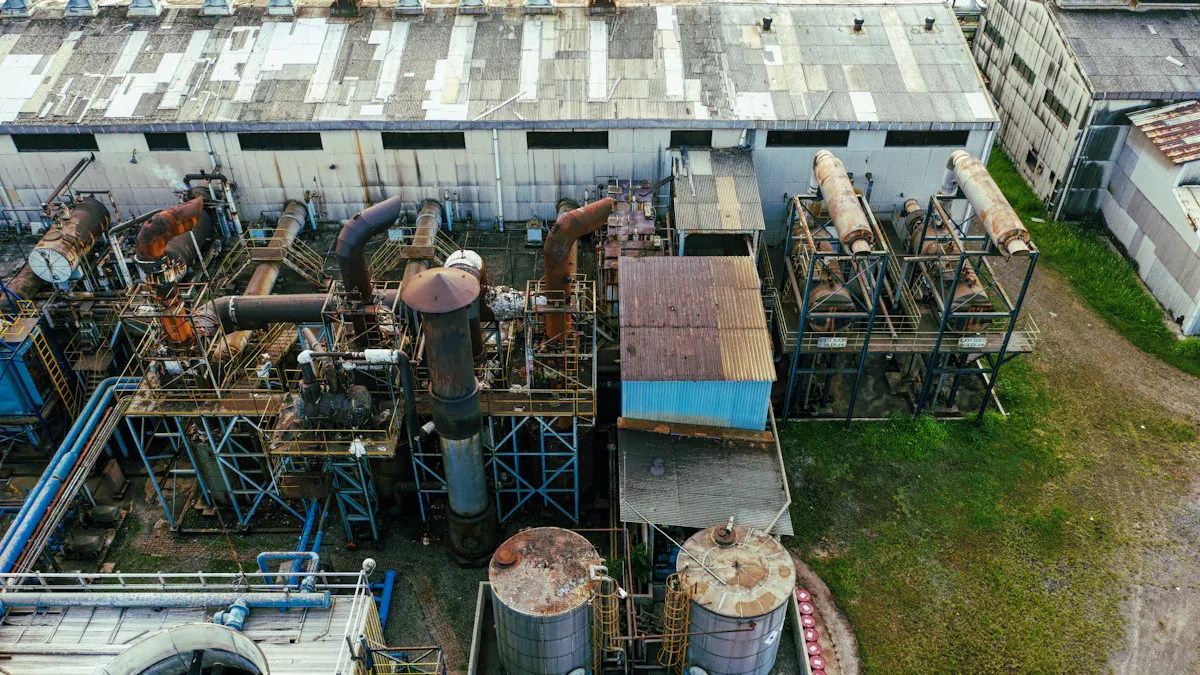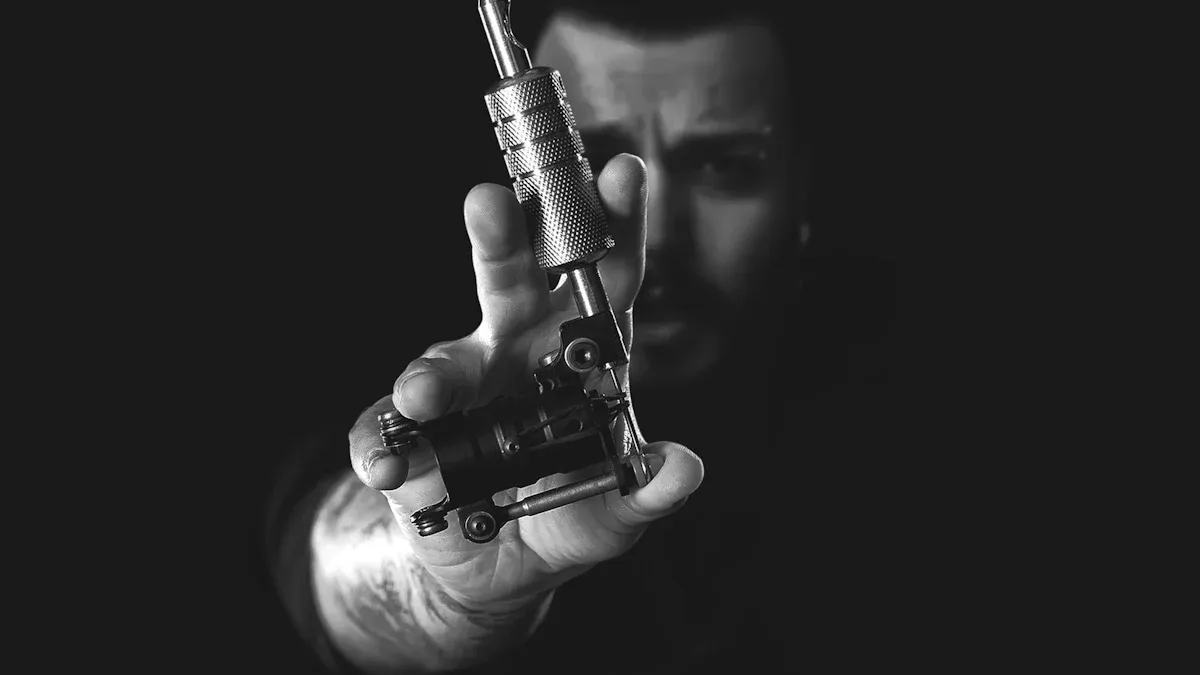
The single screw barrel plays a pivotal role in plastic extrusion, where material performance directly impacts productivity and product quality. In 2025, three standout materials—Material A, Material B, and Material C—will dominate the market. These materials excel in wear resistance, cost-efficiency, and application-specific adaptability, making them indispensable for industries relying on single screw barrels. Whether utilized in a single screw and twin screw extruder or produced in a state-of-the-art single screw barrels factory, these innovations redefine efficiency and durability. Additionally, the extruder parallel screw barrel design enhances the overall performance of the extrusion process, ensuring optimal results across various applications.
Understanding Single Screw Barrel Materials
Importance of Material Selection
Selecting the right material for a single screw barrel is critical for achieving optimal performance in extrusion processes. The material directly influences the barrel’s durability, wear resistance, and ability to handle specific polymers. For instance, materials with high surface hardness, such as 38crMoAIA, offer excellent resistance to abrasive wear, ensuring longevity even under demanding conditions. Additionally, the nitride layer depth of 0.5-0.8mm enhances the barrel’s ability to withstand high-pressure operations, making it suitable for applications like PVC pipe extrusion.
Material selection also impacts the efficiency of the extrusion process. Studies using Discrete Element Method (DEM) modeling demonstrate how material properties affect feeding performance. By simulating powder flow dynamics, researchers have shown that the right material can optimize manufacturing processes, reducing material throughput time and improving overall productivity. This highlights the importance of choosing materials that align with the specific requirements of the application.
Key Factors in Evaluating Single Screw Barrel Materials
When evaluating materials for single screw barrels, several factors come into play. These include wear mechanisms, corrosion resistance, and material compatibility. Abrasive wear, caused by the shearing action during pellet transport, is a common issue. Materials with enhanced surface hardness can mitigate this problem. Corrosion resistance is equally important, especially when processing polymers that may chemically attack the barrel’s surface.
Design considerations also play a crucial role. The straightness and concentricity of the barrel ensure smooth operation, preventing interference during extrusion. Additionally, the screw design must provide sufficient melting capacity to avoid material plugging, which can damage both the screw and barrel. Compatibility between the screw and barrel materials is essential to prevent galling, particularly when softer materials interact with harder ones.
The presence of abrasive additives in polymers further underscores the need for robust materials. These additives can accelerate wear and corrosion, making it vital to select materials that offer enhanced protection. By considering these factors, manufacturers can ensure the longevity and efficiency of their single screw barrels.
Top 3 Single Screw Barrel Materials in 2025

Material A: Properties and Applications
Material A stands out for its exceptional wear resistance and high-temperature stability. Manufacturers use it extensively in applications requiring prolonged operation under extreme conditions. Its composition includes advanced alloys that resist abrasive forces during extrusion. This material ensures consistent performance, even when processing polymers with abrasive additives.
Material A is particularly effective in producing PVC pipes. Its ability to withstand the unique processing demands of PVC compounds makes it a preferred choice for PVC pipe single screw barrels. The material’s durability reduces maintenance costs and enhances productivity. Industries relying on high-output extrusion processes benefit significantly from its reliability.
Material B: Properties and Applications
Material B combines cost-efficiency with excellent corrosion resistance. Its chemical composition includes elements that protect against degradation caused by reactive polymers. This material is ideal for applications where chemical exposure is frequent, such as blow molding processes.
Single screw barrels made from Material B excel in producing hollow shapes like bottles and containers. The material’s precise control over melting and shaping ensures uniform parison formation. Manufacturers value its ability to deliver consistent results while minimizing operational costs. Material B’s affordability makes it accessible to businesses seeking high-quality performance without exceeding budget constraints.
Material C: Properties and Applications
Material C offers unparalleled adaptability for diverse extrusion applications. Its balanced properties include moderate wear resistance, thermal stability, and compatibility with various polymers. This material is a versatile choice for industries requiring flexibility in production.
PE pipe extruder single screw barrels benefit greatly from Material C’s unique characteristics. The material accommodates the rheological properties of polyethylene, ensuring efficient melting and mixing. Its optimized design supports high throughput, meeting the stringent demands of PE pipe production. Material C’s versatility makes it suitable for manufacturers handling multiple polymer types, enhancing operational efficiency across different product lines.
Choosing the Right Single Screw Barrel Material

Application-Specific Recommendations
Selecting the ideal material for a single screw barrel depends heavily on the application. For PVC pipe extrusion, materials with high wear resistance and thermal stability, such as Material A, are recommended. These properties ensure consistent performance under the demanding conditions of PVC processing. In contrast, blow molding applications benefit from materials like Material B, which offer superior corrosion resistance and precise control over polymer melting. This ensures uniform parison formation, critical for producing high-quality hollow products.
For polyethylene pipe extrusion, Material C stands out due to its adaptability to the rheological properties of PE. Its ability to maintain efficient melting and mixing supports high throughput, making it a reliable choice for PE pipe production. Studies on solid conveying pressure throughput behavior emphasize the importance of selecting materials that optimize the transfer of polymers in the solid conveying section. Additionally, finite element analysis of screw performance under varying conditions highlights how material selection impacts extrusion efficiency.
Cost vs. Performance Considerations
Balancing cost and performance is crucial when choosing a single screw barrel material. While high-performance materials like Material A may have a higher upfront cost, their durability and reduced maintenance needs often result in long-term savings. Materials like Material B, known for their affordability, provide an excellent option for applications with moderate wear and corrosion demands.
Simplified models predicting mass flow rate and pressure at the extruder exit can guide cost-effective decisions. For instance, grooved barrel designs, which enhance extrusion performance, may justify the investment in premium materials. A case study involving automated planning models demonstrated how accurate material selection can prevent inventory shortages and excesses, ensuring operational efficiency.
The top three single screw barrel materials—Material A, Material B, and Material C—excel in wear resistance, corrosion protection, and adaptability. Each material aligns with specific applications, ensuring optimal performance.
Selecting the right material enhances productivity and reduces costs. Manufacturers should assess their operational needs carefully to make informed decisions that maximize efficiency and durability.
FAQ
What factors determine the lifespan of a single screw barrel?
The lifespan depends on material quality, wear resistance, and maintenance practices. Regular cleaning and proper usage extend durability significantly.
Can single screw barrels handle multiple polymer types?
Yes, versatile materials like Material C adapt to various polymers. They ensure efficient melting and mixing for diverse extrusion applications.
How do I choose the best material for my application?
Evaluate processing needs, polymer type, and budget. Materials like A, B, or C offer tailored solutions for PVC, PE, or blow molding processes.
Post time: Jun-09-2025
